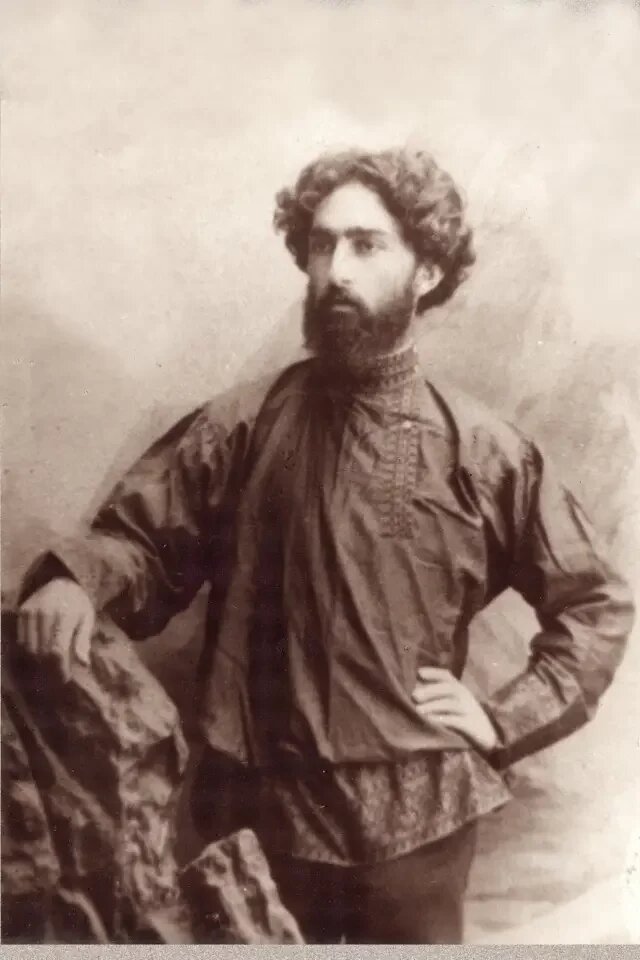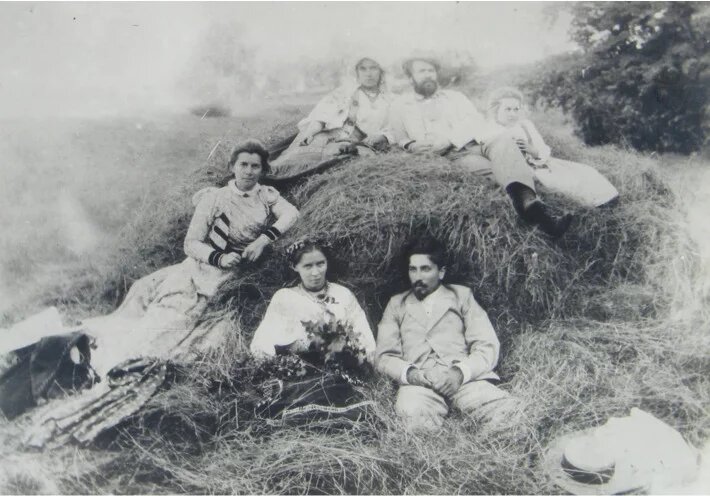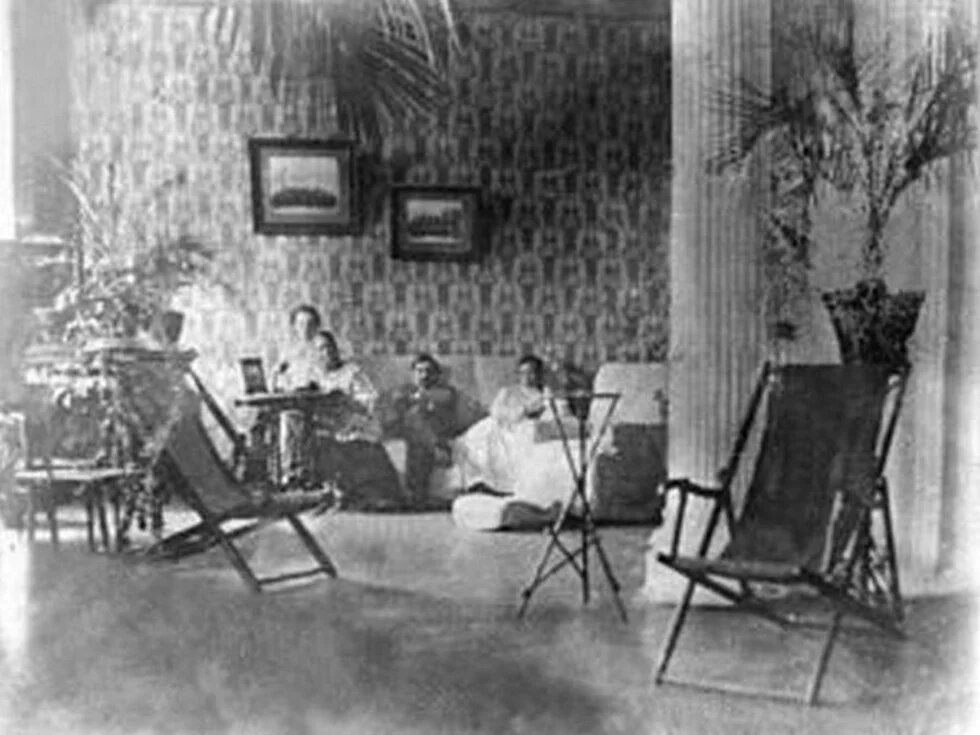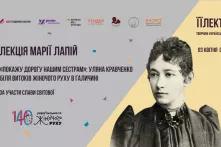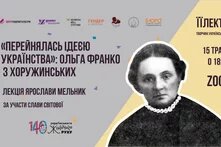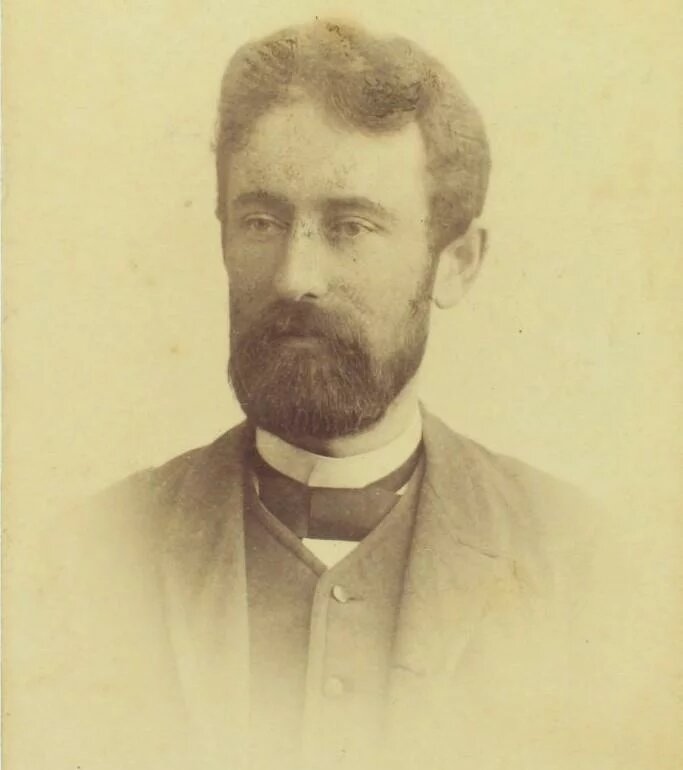
Публікуємо тези лекції ЇЇЛекторію, яка відбулася 12 лютого 2025 року.
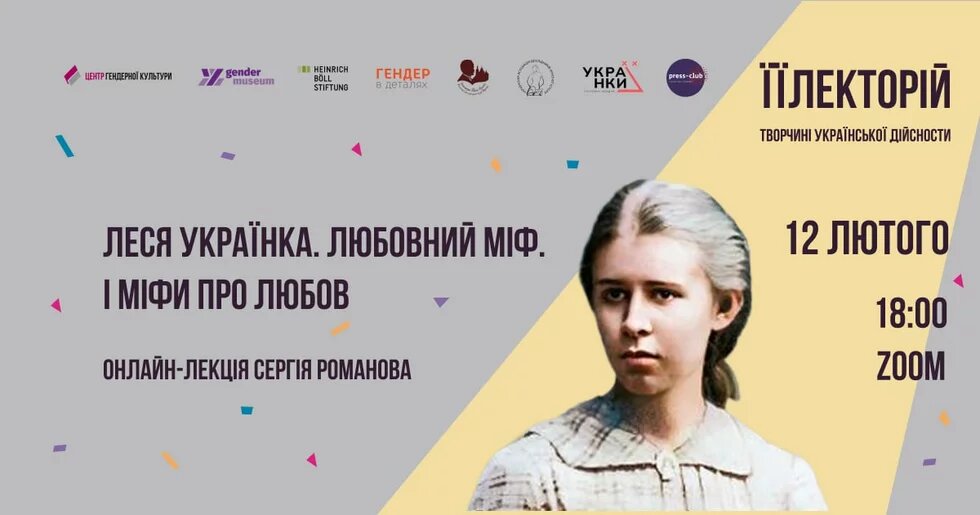
Lesіa Ukrainka (1871-1913) is a well-known, even textbook figure in Ukrainian culture. However, her literary, social, political, and educational achievements obscure her real-life profile.
A woman who has long been perceived and is still perceived mainly through the prism of Franko famous definition of a “lonely man.” This is why praising her civic position, her efforts to establish the national idea, and her creation of the Ukrainian state in word and deed is customary. And these are truly large-scale, epoch-making achievements. At the same time, or rather, at the same time, Lesia Ukrainka is also Larysa Kosach, a woman who had a personal life, romantic interests, and great love. Muted by socially significant vectors, as well as by her illness as an identity marker, the writer's private sphere was constantly subjected to retouching and silencing.
The life work of Lesia Ukrainka/Larysa Kosach has become a model of modern self-maintenance of the artist and, together, of the creative being of the individual. The love myth she created laid down new levels of sensual, ethical, and emotional experience for the Ukrainian person of modern and contemporary times.
She realized this with a high standard of artistic work and genius, as evidenced by dozens of works of various genres. However, the basis of the writing was the unique life experience of a woman in her relationships with men. The first story to stand out here is that of Maksym Slavinskyi, an eighteen-year-old man Larysa Kosach met when she was fifteen.
This first romantic infatuation turned into a painful experience of indifference on the part of the object of her infatuation and a self-awareness of her otherness. This experience was probably even more unbearable in her relationship with Nestor Gambarashvili (Gambarov), a Georgian student who rented an apartment from the Kosach in Kyiv.
His behavior (including marrying and distancing himself from Larysa) hurt her, and he rejected her again.
The relationship with Serhii Merzhynskyi became the model of relations with the Other that became acceptable, alive, and fruitful for the internal affirmation of Larysa Kosach/Lesia Ukrainka.
Finally, she found a man worthy of her, an equal and courageous man who would not fear her or her feelings. The relationship, which lasted almost four years, affirmed Larysa Kosach's female identity and established and channeled Lesia Ukrainka talent.
During this period, “Serhiy Merzhynskyi Lyrical Drama” was created, a large body of work that includes about two dozen poems, two lyric-epic poems, and the dramatic poem Possessed. What she experienced in her feelings for her lover, what she experienced with him in the most terrible moments, charged her words with energy and tones that she had never experienced before. The willingness to fight death itself for the beloved, to die with him or for him, fully reflects the path of Orpheus. Lesіa Ukrainka experience is invaluable here, because it is the experience of a female Orpheus. The path the writer treads is similar to and, simultaneously, different from the male way.
Her relationship and subsequent marriage to Klyment Kvitka, who was nine years younger than her, gave Larysa Kosach-Kvitka not only a change in social status.
This also affected Lesіa Ukrainka work, finding expression and re-experience in several significant dramas for our culture, such as “Aisha and Mohammed”, “The Forest Song”, “Sappho”, and others. In many of her works, the writer reflects on the peculiarities of relationships between people of different ages, occupations, preferences, characters, etc. Also during this period, she was interested in marriage, particularly how it affects artists' lives. And the issue of betrayal becomes a cross-cutting theme in her writing, especially in drama.
Lesia Ukrainka/Larysa Kosach relationships with men were characterized by the freedom of thought, speech, and action that distinguishes her best characters. And this convincingly proves her status as a free, self-confident woman. And also the status of a modern writer who lived as she created and created as she lived.
The translation from Ukrainian was created with the help of DeepL.
